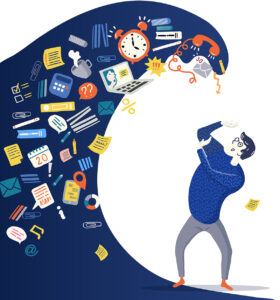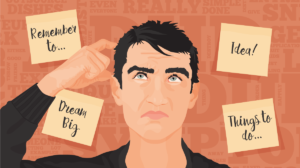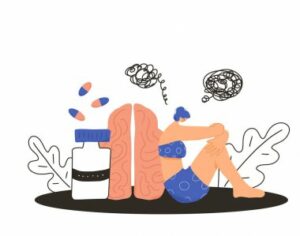Attention Deficit Hyperactivity Disorder, or ADHD, is a mental disorder that can cause problems with focus, hyperactivity, and impulsiveness. It is most commonly diagnosed in children and adolescents, but it can also occur in adults. In a new study, researchers found that ADHD may get worse with age. If you or someone you know has ADHD, it is important to be aware of this finding and seek treatment if necessary.
Contents
What Is ADHD?
ADHD is a mental disorder that is characterized by problems with focus, hyperactivity, and impulsiveness. It is most commonly diagnosed in children and adolescents, but it can also occur in adults. Symptoms of ADHD can vary from person to person and may include difficulty paying attention, easily getting distracted, fidgeting or talking excessively, or acting impulsively without thinking about the consequences. It is important to note that not everyone who has ADHD will have all of the same symptoms.
ADHD can cause problems in school, work, and relationships. It can also lead to accidents and injuries. If left untreated, ADHD can have a significant impact on a person’s quality of life.
Does ADHD Get Worse With Age?

In a recent study, researchers followed a group of children with ADHD into adulthood and found that the symptoms of ADHD tended to get worse with age. The study participants who had more severe symptoms as children were more likely to have worse symptoms as adults. This is an important finding, as it suggests that ADHD may not be a “phase” that goes away after childhood. If you or someone you know has been diagnosed with ADHD, it is important to be aware of this and seek treatment if necessary.
It is also important to keep in mind that not everyone with ADHD will have the same experience. Some people may find that their symptoms improve as they get older, while others may find that their symptoms stay the same or get worse.
It was mostly observed that adults who did not receive timely treatment for their diagnosis early in their life witnessed a decline in their symptoms. Without treatment, the symptoms of ADHD can lead to problems in various areas of life.
While it is pretty evidently stated that ADHD can not be cured, it is essential to begin early interventions to begin a timely formation of coping strategies and cope with the lagging brain development issues from childhood.
It is noted that without guidance and intervention, some symptoms may also have instances of depreciating since aging also changes our cognitive, emotional, and behavioral abilities. This change may clash with the often destructive nature of ADHD symptoms, which can cause a lot of trouble for some individuals.
Symptoms Of Adult ADHD

While the symptoms of ADHD can vary from person to person, there are some common symptoms that adults with ADHD may experience. These include
- difficulty paying attention
- easily getting distracted
- restlessness
- fidgeting or talking excessively
- acting impulsively without thinking about the consequences
- problems with organization
- impulsive spending
- risky sexual behaviors
- sleeping problems
- impatience
- financial mismanagement
- losing belongings
- restlessness
- unmanageable temper
- inability to multitask
- mood swings
- impulsiveness
- low frustration tolerance
- trouble following through on tasks or commitments
- struggle with time management
- experience relationship difficulties
In addition to these symptoms, adults with ADHD may also have problems with anxiety, depression, and substance abuse. It is important to seek treatment if you or someone you know is experiencing any of these symptoms.
What Factors Make ADHD Get Worse With Age?

Several factors may make the symptoms of ADHD worse with age. These include
- environmental stressors
- lack of proper sleep habits
- increase in stress levels
- poor diet and nutritional imbalance
- substance abuse
- certain medications
- other untreated mental health condition(s)
It is also important to remember that with change in the above factors, the type of ADHD diagnosis may also change. For example, someone who initially had inattentive ADHD may later get a combined type diagnosis because of changes.
Effects
ADHD can have a significant impact on a person’s quality of life. It can cause problems in school, work, and relationships. It can also lead to accidents and injuries. If left untreated, ADHD can have a serious impact on a person’s ability to function in daily life. It can come in the way of essential happenings like profession, friendships, family life, intimate relationships, and financial stability, among other things.
It can also lead to anxiety, depression, and substance abuse. There is also an increase in the vulnerability of developing other disorders like bipolar disorder, OCD, PTSD, etc.
How Is Adult ADHD Treated?

There is no “cure” for ADHD, but there are treatments that can help. These treatments may require the help of a mental health professional or can have self-assessment.
Medication
Psychiatric drugs often treat the symptoms of ADHD in severe cases. Stimulant medications such as methylphenidate (Ritalin) and dextroamphetamine (Adderall) are commonly prescribed. These medications can help to improve focus and reduce impulsiveness. Non-stimulant medications such as atomoxetine (Strattera) and guanfacine (Intuniv) may also be effective.
Therapy
Cognitive-behavioral therapy (CBT) is a type of therapy that can help adults with ADHD learn to manage their symptoms. CBT can help you to identify and change negative thought patterns and behaviors. It can also teach you coping and problem-solving skills.
Psychotherapy is another treatment option for adults with ADHD. This type of therapy can help you to understand your ADHD and how it affects your life. It can also teach you skills to manage your symptoms.
Support groups also help in understanding and accepting adult ADHD. There are many support groups available for adults with ADHD. These groups provide a safe and supportive environment where you can share your experiences and learn from others.
Lifestyle changes
Making lifestyle changes can also help to manage the symptoms of ADHD. These changes can look like this:
- eating a healthy diet
- getting enough sleep
- journaling
- practicing relaxation and mindfulness
- avoiding caffeine, sugar, and highly oily foods
- limiting screentime
- exercising regularly
- managing stress levels
Conclusion
In conclusion, ADHD is a mental disorder that can cause problems with focus, hyperactivity, and impulsiveness. It is mostly common in children and adolescents, but it can also occur in adults. As we age, our brains change. This can lead to a worsening of symptoms for those with ADHD. If you or someone you know has ADHD, it is important to be aware of this finding and seek treatment if necessary.
For more information, please contact MantraCare. ADHD is a neurodevelopmental disorder characterized by difficulty in paying attention, hyperactivity, and impulsivity. If you have any queries regarding Online ADHD Counseling experienced therapists at MantraCare can help: Book a trial ADHD therapy session


